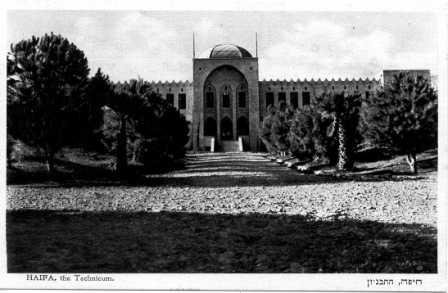
During the First and Second Aliyah, attempts were made to make the Hebrew language more dominant in the life of the Yishuv, but other languages took prominence. Among the many Jewish schools of the Yishuv, only in six were the studies conducted in Hebrew.
The Ezrah association, headed by Dr. Paul Nathan, began planning the Technion (today's Israel Institute of Technology) in 1908, with the aid of the World Zionist Organization. The association decided that studies in the institution would be conducted in German, asserting that this was the customary language of science, and that Hebrew, being a language in the midst of a rejuvenation process, did not yet include professional and scientific terms necessary for higher education.
This decision caused a public outrage in the Yishuv, and in 1913, a struggle began, known as the War of the Languages. Among the most dominant adversaries of the decision was Eliezer Ben Yehuda.
The first phase of the struggle saw the resignation of three members of the World Zionist Organization as an act of protest, after the Ezrah association refused to alter its decision. The second phase of the struggle comprised of more active acts of popular defiance, such as demonstrations and protest assemblies in Palestine and around the world. In the third phase, teachers and students boycotted Ezrah institutions and founded competing schools. The World Zionist Organization assumed the task of founding Hebrew educational institutions.
The Ezra association succumbed to the demands of the Yishuv, but shortly after that, World War I erupted and the Ezrah association terminated its activities in Palestine.
The Language War led to some important achievements. As a result of the protests, independent Hebrew educational institutions were founded in Palestine, unhindered by dependence on organizations from abroad. And more importantly, the Language War was a significant landmark in the process of the assimilation of Hebrew into the Yishuv and its determination as one of the two official languages of the future State of Israel.